NewsSeminars and Tutorials
Upcoming Events
Seminars
From Pixels to Statistical Models: Recent Theoretical Advances in Efficient Sampling of Diffusion Models
Yuchen Wu, Postdoctoral Scholar, Department of Statistics and Data Science, University of Pennsylvania
Wednesday, May 7th, 2025
11:00 AM - 12:00 PM
Tech C211 (IEMS Conference Room)

Bio: Yuchen Wu is a postdoctoral researcher in the Department of Statistics and Data Science at the Wharton School, University of Pennsylvania. Dr. Wu received her Ph.D. in 2023 from the Department of Statistics at Stanford University, advised by Professor Andrea Montanari. Prior to Stanford, Dr. Wu received her Bachelor's degree in mathematics from Tsinghua University. She will join Cornell University as an Assistant Professor in the School of Operations Research and Information Engineering in July 2025.
Dr. Wu’s research lies broadly at the intersection of statistics and machine learning, with a current focus on sampling and diffusion models.
OSL User Group Meetings
OSL user group meetings support PhD students with the computational aspects of their research, such as fundamental programming practices and the utilization of OSL computing infrastructure. They consist of informal discussions of topics brought by the week's participants, such as specific questions that a member faces in their current work or recommendations of more experienced users. A typical meeting will start with everybody sharing what is on their mind computation-wise. In some meetings, volunteers might give a presentation on a topic that came up during a discussion.
If you are interested and would like to be notified of future meetings, please sign up for the OSL mailing list or slack channel by emailing one of us. And please contact us if you have any questions.
Andreas Waechter (andreas.waechter@northwestern.edu)
Past Events
Seminars
Learning with norm-based neural networks: model capacity, function spaces, and computational-statistical gaps
Fanghui Liu, Assistant Professor of Computer Science, University of Warwick
December 3rd, 2024
In this talk, I will discuss some fundamental questions in modern machine learning, starting from “suitable” model capacities and then focusing on norm-based capacity as well as the induced Barron spaces from statistical to computational sides. First, I will talk about the statistical efficiency (w.r.t. metric entropy) of learning in Barron space to achieve the "best" trade-off between \epsilon-covering and the input dimension. Second, to track computational-statistical gap, I will briefly introduce a fundamental problem in complexity theory and learning theory: learning with multiple ReLU neurons (additive model, as a special case of Barron functions) via gradient descent. This analysis aims to shed light on how student neurons evolve into teacher neurons after weak recovery. The goal is to (partially) answer the following question: Which function class can be efficiently learned by (two-layer) neural networks trained by gradient descent?
(Joint work with Leello Dadi, Zhenyu Zhu, Volkan Cevher)
Bio: Dr. Fanghui Liu is currently an assistant professor at University of Warwick, UK. His research interests include machine learning theory as well as theoretical-oriented applications, e.g., large-scale computational methodologies and trustworthy machine learning. For his work and collaboration, he was a recipient of AAAI’24 New Faculty Award, DAAD AINeT Fellowship 2024, and Rising Star in AI (KAUST 2023). He has served an area chair at ICLR, AISTATS, and AAMAS. He will organize a workshop at NeurIPS’24 on fine-tuning and has presented three tutorials at ISIT’24, CVPR’23, and ICASSP’23, respectively.
Prior to his current position, he worked as a postdoc researcher at EPFL (2021-2023) and KU Leuven (2019-2023), respectively. He received his PhD from Shanghai Jiao Tong University (China) in 2019 and bachelor’s degree from Harbin Institute of Technology (China) in 2014.
Distinguished Lecture Series 2024
Operator Learning: Algorithms, Analysis and Applications
Bren Professor of Computing and Mathematical Sciences, CalTech
May 21st, 2024
Co-Sponsored with Department of Engineering Sciences and Applied Mathematics
Approximating operators that map between function spaces can be useful for accelerating systems level tasks in scientific computing, and for discovering computational models from data. In its most basic form, learning an operator may be cast as a form of supervised learning in which the input-output pairs are functions. The talk will overview a variety of specific approximation architectures that have been developed in the last five years; emerging theoretical results explaining the approximation capabilities of the architectures will be explained; and applications to constitutive modeling (plasticity) and inverse problems (fluid mechanics) will be given.
Bio

First-order Methods for Constrained Continuous Optimization
Assistant Professor of Operations Management, Chicago Booth School of Business
May 2nd, 2024

Bio
Haihao (Sean) Lu is an assistant professor of Operations Management at the University of Chicago Booth School of Business. His research interests are extending the computational and mathematical boundaries of methods for solving large-scale optimization problems in data science, machine learning, and operations research. Before joining Booth, he was a faculty visitor at Google Research's large-scale optimization team. He obtained his Ph.D. in Operations Research and Mathematics at MIT in 2019. His research has been recognized by a few research awards, including the INFORMS Optimization Society Young Researcher Prize, the INFORMS Revenue Management and Pricing Section Prize, and the Michael H. Rothkopf Junior Researcher Paper Prize (first place).
Trends in computing: perspectives from the field
Founder's Coach and Partner, Sequoia Capital
May 9th, 2023

Bio
Bill is a technologist specializing in large-scale computing and networking systems with general management experience. He holds a B.S. from Caltech and a PhD from Stanford. He started his career at Bell Labs, where he rose to VP of the Computing Sciences Research Center. During 1998-2000, he was Senior VP, Bell Labs Research Silicon Valley, having co-founded that organization. He joined Google as an engineering director in early 2003 and rose to Senior Vice President for research and systems infrastructure; his responsibilities ranged from client (Chrome) to geo (maps) to video (You Tube) to search (google.com) and research for Google. For much of his tenure, he served on Google's executive committee. He joined Sequoia Capital in 2011 where he works as a partner and founders’ coach and helps build effective technology-centric organizations.
Distinguished Lecture Series, 2023
Speech Recognition: The Journey From Research to Production
Tara Sainath
Principal Research Scientist, Google
May 2nd, 2023
View the Presentation Slides (NU Access Required)
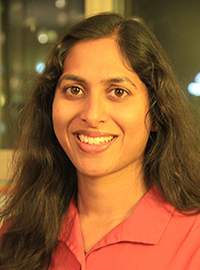
Bio
Tara Sainath received her S.B., M.Eng and PhD in Electrical Engineering and Computer Science (EECS) from MIT. After her PhD, she spent 5 years at the Speech and Language Algorithms group at IBM T.J. Watson Research Center, before joining Google Research. She has served as a Program Chair for ICLR in 2017 and 2018. Also, she has coorganized numerous special sessions and workshops for many speech and machine learning conferences. In addition, she has served as a member of the IEEE Speech and Language Processing Technical Committee (SLTC) as well as the Associate Editor for IEEE/ACM Transactions on Audio, Speech, and Language Processing. She is an IEEE and ISCA Fellow. In addition, she is the recipient of the 2021 IEEE SPS Industrial Innovation Award as well as the 2022 IEEE SPS Signal Processing Magazine Best Paper Award. She is currently a Principal Research Scientist at Google, working on applications of deep neural networks for automatic speech recognition.
Hybrid Precision Algorithms in a Safe and Verified MIP Framework
Ambros Gleixner
Professor, HTW Berlin; Group Lead, Mathematical Optimization Methods, ZIB
Thursday, March 9th, 2023, 10:30 AM
Argonne National Laboratory

Registration: https://events.cels.anl.gov/event/389/
In addition to the seminar, there will be opportunities for attendees to network with other professionals from Argonne, Northwestern, and UChicago and engage in discussions with the speaker. This seminar series provides a great opportunity for attendees to connect with others who share their interests.
The seminar will be held at Argonne National Laboratory and is open to all professionals, researchers, and students who are interested in computational optimization.
Dueling-Opt: Convex Optimization with Relative Feedback
Aadirupa Saha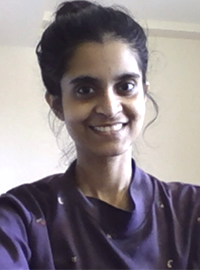
Visiting Scientist, Toyota Technological Institute of Chicago
Thursday, October 20, 11 a.m. - Noon
Tech L440
In this talk we will discuss an unconventional version of the standard bandit convex optimization (BCO) problem with preference (dueling) feedback---Like the traditional optimization objective, the goal is to find the minimizer of a convex function with the least possible query complexity, however, without the luxury of even zeroth-order feedback; here instead, at each round, the learner can only observe a single noisy 0/1 win-loss feedback for a pair of queried points (based on their underlying function values). The problem is certainly of great practical relevance in any real-world system with potentially large (or even infinite) decision spaces. The main difficulty in this framework is that any `gradient-descent’ based technique is bound to fail as it is impossible to estimate gradient information at any point from a single bit comparison preference feedback which does not reveal any magnitude information of the underlying cost function at the queried points. We overcome this challenge by designing a normalized gradient descent based algorithms and showed near-optimal convergence rates for smooth and strongly convex functions. Towards the end, we will consider this problem for a very general class of preference functions which includes all monotonic functions that can be approximated by finite degree polynomials. We will conclude the talk with plethora of open questions led by this general direction of optimization with `unconventional feedback' which can help bridging the gaps between theory and practice in many real world applications. [Based on joint works with Tomer Koren (Tel Aviv Univ and Google), Yishay Mansour (Tel Aviv Univ and Google)]
Bio: Aadirupa Saha is a visiting faculty member at TTI Chicago. Before this, she was a postdoctoral researcher at Microsoft Research New York City. She obtained her Ph.D. from the Department of Computer Science, Indian Institute of Science, Bangalore, advised by Aditya Gopalan and Chiranjib Bhattacharyya. Aadirupa was an intern at Microsoft Research, Bangalore, Inria, Paris, and Google AI, Mountain View.
Her research interests include Bandits, Reinforcement Learning, Optimization, Learning Theory, and Algorithms. Of late, she is also very interested in working on problems in the intersection of ML and Game Theory, Algorithmic Fairness, and Privacy.
An overview of mixed-precision methods in scientific computing
Matteo Croci
Postdoctoral Researcher, Oden Institute, University of Texas Austin
Thursday, October 6
Motivated by the advent of machine learning, the last few years saw the return of hardware-supported reduced-precision computing. Computations with fewer digits are faster and more memory and energy efficient, but a careful implementation and rounding error analysis are required to ensure that sensible results can still be obtained. As a consequence, the design and analysis of algorithms that perform all or part of the computations using different precisions has now become an active field of investigation and many new reduced-, mixed-, and multi-precision algorithms are available.
In this talk I will give an overview of some of the state-of-the-art reduced- and mixed-precision algorithms and theories in scientific computing, including numerical linear algebra (NLA), the numerical solution of differential equations, and optimization. Emphasis will be given to the first two topics: the first since the NLA community has been the main driver behind recent developments, and the second because it is one of my research fields.
Towards the Foundation of Dynamic Multi-agent Learning
Muhammed Omer Sayin
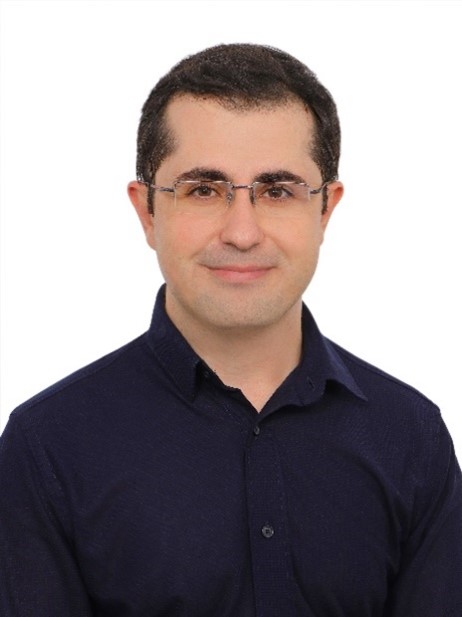
Assistant Professor, Electrical and Electronics Engineering, Bilkent University
Monday, June 27th, 2022
Many of the forefront applications of reinforcement learning involve multiple agents and dynamic environments, e.g., playing chess and Go games, autonomous driving, and robotics. Unfortunately, there has been limited progress on the foundation of dynamic multi-agent learning, especially independent learning in which intelligent agents take actions consistent with their individual objectives, e.g., based on behavioral learning models, quite contrary to the plethora of results on algorithmic solutions. In this talk, I will present a new framework and several new independent learning dynamics. These dynamics converge almost surely to equilibrium or converge selectively to an equilibrium maximizing the social welfare in certain but important classes of Markov games -- ideal models for decentralized multi-agent reinforcement learning. These results can also be generalized to the cases where agents do not know the model of the environment, do not observe opponent actions and can adopt different learning rates. I will conclude my talk with several remarks on possible future research directions for the framework presented.
Muhammed Omer Sayin is an Assistant Professor at Bilkent University, Department of Electrical and Electronics Engineering. He was a Postdoctoral Associate at the Laboratory for Information and Decision Systems (LIDS), Massachusetts Institute of Technology (MIT). He got his Ph.D. from the University of Illinois at Urbana-Champaign (UIUC) in December 2019. During his Ph.D., he had two research internships in Toyota InfoTech Labs, Mountain View, CA. He got his M.S. and B.S. from Bilkent University, Turkey, respectively, in 2015 and 2013. He is a recipient of the TUBITAK 2232-B International Fellowship for Early-Stage Researchers. The overarching theme of his research is to develop the theoretical and algorithmic foundation of learning and autonomy in complex, dynamic, and multi-agent systems.
A Closed-Loop Machine Learning and Compensation Framework for Geometric Accuracy Control of 3D Printed Products
Arman Sabbaghi
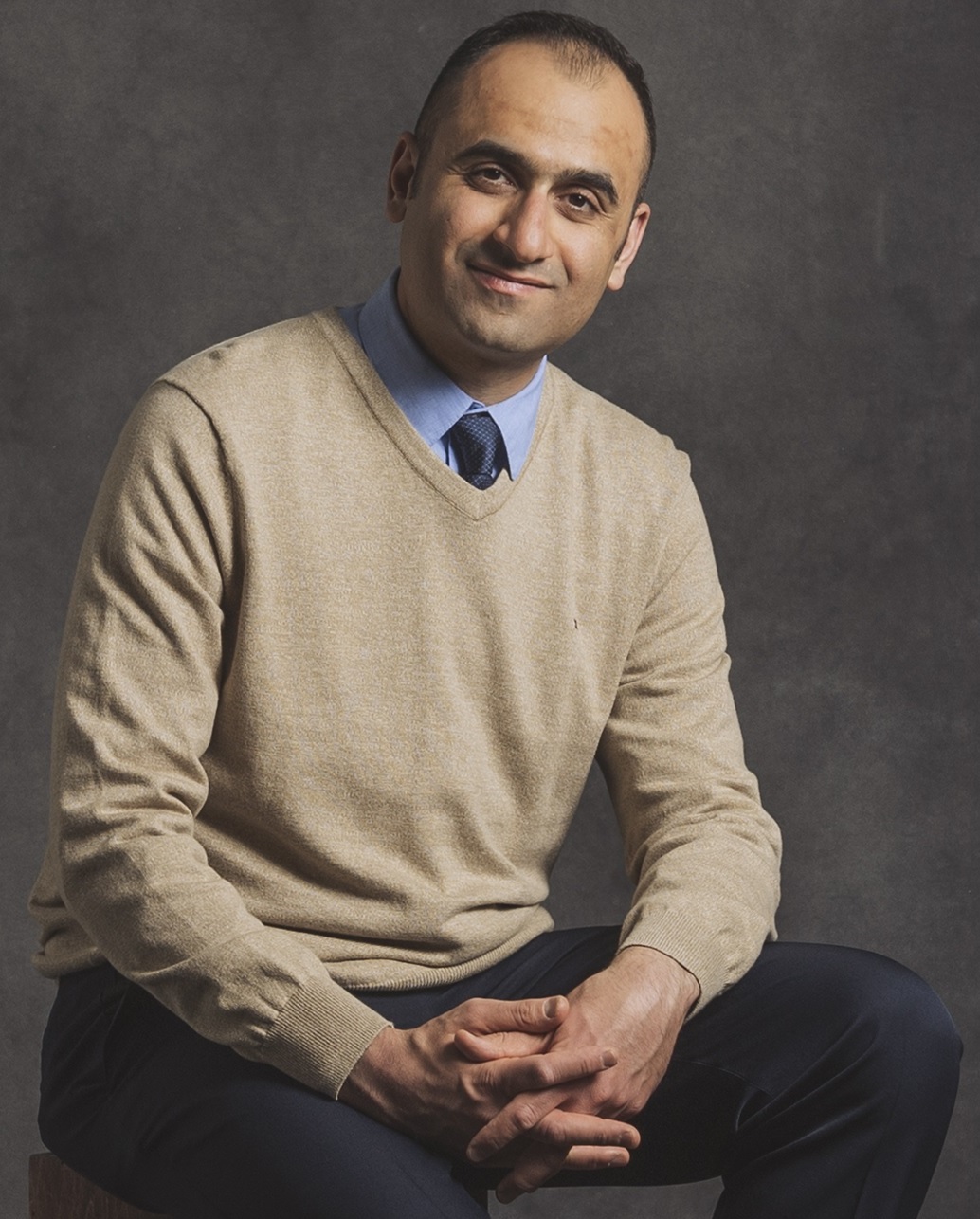
Associate Professor, Applied Statistics, Purdue University
Associate Director, Statistical Consulting Service
Thursday, April 7, 2022
Additive manufacturing (AM) systems enable direct printing of physical products from computer-aided design (CAD) models. One of the significant limitations of AM is shape deviations between the printed product and the nominal CAD model. This talk presents a closed-loop machine learning and compensation framework for improved accuracy control in AM systems. In this framework, CAD models and measurements from previously printed products are used to build a machine learning model to predict shape deviations for new products. The machine learning model is based on a Bayesian extreme learning machine (BELM) architecture that more accurately captures deviation patterns. This model enables accuracy control of future printed products via the construction of compensation plans, which are modifications of CAD models that reduce deviations. The closed-loop nature of compensation is fully sequential in that it requires printing only one new shape at a time. Furthermore, accurate products can be printed in a small number of iterations. As demonstrated in our case studies using a Markforged Metal X AM machine printing 17-4 PH stainless steel products, our framework can reduce shape inaccuracies by 30% to 60% (depending on a shape's geometric complexity) in at most two iterations, with three training shapes and one or two test shapes for a specific geometry involved across the iterations. Ultimately, our closed-loop framework addresses the significant challenge of “few shot” learning and control of AM systems by means of a machine learning architecture and process that enables knowledge transfer across different products and iterations in the system.
A Closed-Loop Machine Learning and Compensation Framework for Geometric Accuracy Control of 3D Printed Products
Madeleine Udell
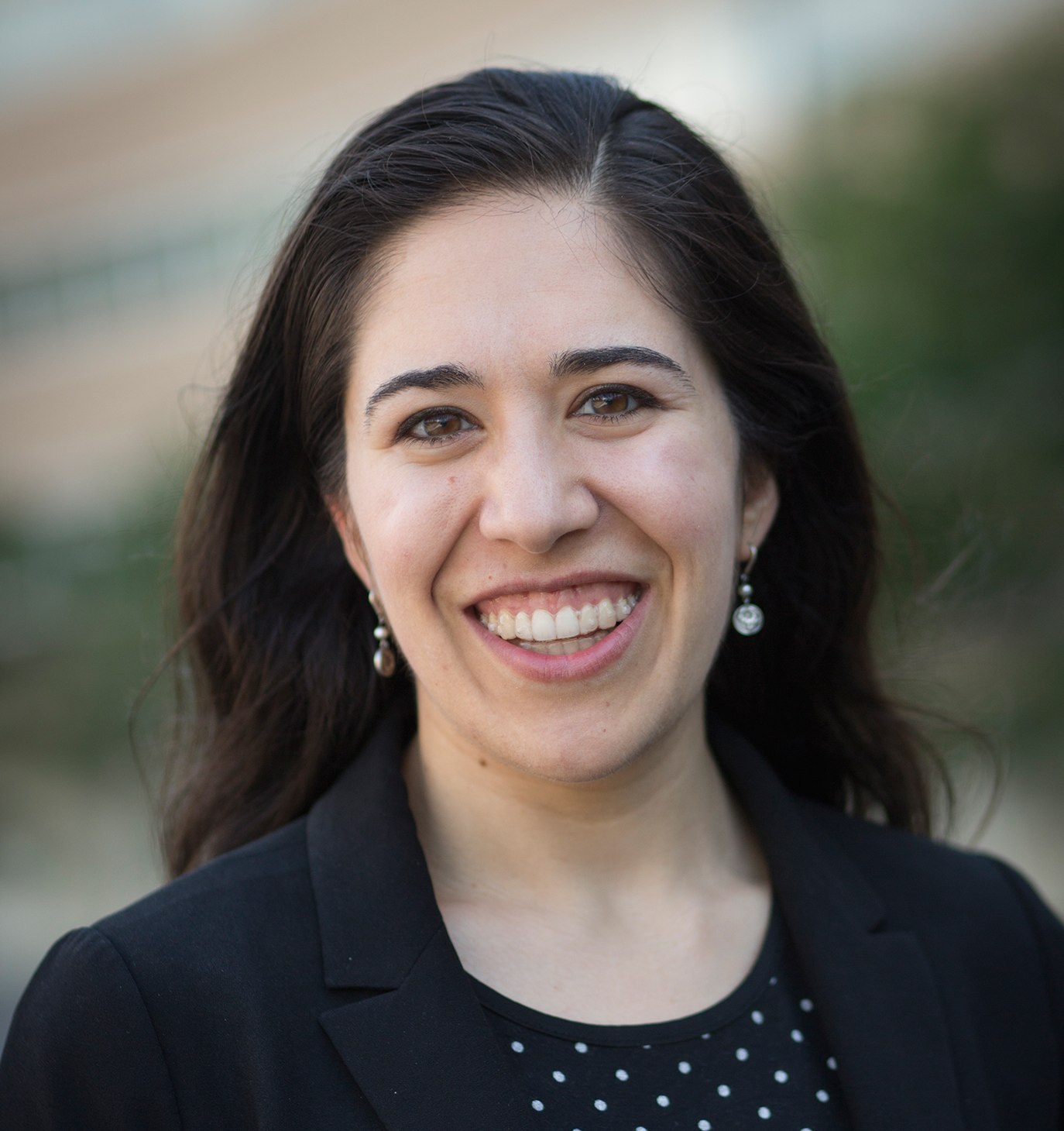
Assistant Professor, Richard and Sybil Smith Sesquicentennial Fellow, Operations Research and Information Engineering (ORIE), Cornell University
Tuesday, May 18, 2021
Detecting equivalence between iterative algorithms for optimization
Based on joint work with Shipu Zhao and Laurent Lessard
When are two algorithms the same? How can we be sure a recently proposed algorithm is novel, and not a minor twist on an existing method? In this talk, we present a framework for reasoning about equivalence between a broad class of iterative algorithms, with a focus on algorithms designed for convex optimization. We propose several notions of what it means for two algorithms to be equivalent, and provide computationally tractable means to detect equivalence. Our main definition, oracle equivalence, states that two algorithms are equivalent if they result in the same sequence of calls to the function oracles (for suitable initialization). Borrowing from control theory, we use state-space realizations to represent algorithms and characterize algorithm equivalence via transfer functions. Our framework can also identify and characterize some algorithm transformations including permutations of the update equations, repetition of the iteration, and conjugation of some of the function oracles in the algorithm. A software package named Linnaeus implements the framework and makes it easy to find other iterative algorithms that are equivalent to an input algorithm. More broadly, this framework and software advances the goal of making mathematics searchable.
Distinguished Lecture Series, 2021
Benjamin Van Roy
Professor of Electrical Engineering, of Management Science and Engineering, and (by courtesy) of Computer Science, Stanford University
January 12, 2021
Leveraging creative algorithmic concepts and advances in computation, achievements of reinforcement learning in simulated systems have captivated the world's imagination. The path to artificial agents that learn from real experience counts on major advances in data efficiency. Should we try to carefully quantify information generated through and extracted from experience so that we can design agents that uncover and digest information as efficiently as possible? I will discuss research that aims
to take us in this direction.
Bio
Benjamin Van Roy is a Professor at Stanford University, where he has served on the faculty since 1998. His research focuses on the design, analysis, and application of reinforcement learning algorithms. Beyond academia, he leads a DeepMind Research team in Mountain View, and has also led research programs at Unica (acquired by IBM), Enuvis (acquired by SiRF), and Morgan Stanley.
He is a Fellow of INFORMS and IEEE and has served on the editorial boards of Machine Learning, Mathematics of Operations Research, for which he co-edited the Learning Theory Area, Operations Research, for which he edited the Financial Engineering Area, and the INFORMS Journal on Optimization.
Distinguished Lecture Series, 2019
Learning Representations Using Causal Invariance
Leon Bottou
Research Scientist, Machine Learning and AI

Thursday, October 24, 2019
Learning algorithms often capture spurious correlations present in the training data distribution instead of addressing the task of interest. Such spurious correlations occur because the data collection process is subject to uncontrolled confounding biases. Suppose however that we have access to multiple datasets exemplifying the same concept but whose distributions exhibit different biases. Can we learn something that is common across all these distributions, while ignoring the spurious ways in which they differ? This can be achieved by projecting the data into a representation space that satisfy a causal invariance criterion. This idea differs in important ways from previous work on statistical robustness or adversarial objectives. Similar to recent work on invariant feature selection, this is about discovering the actual mechanism underlying the data instead of modeling its superficial statistics.
Bio
Léon Bottou received the Diplôme d’Ingénieur de l’École Polytechnique (X84) in 1987, the Magistère de Mathématiques Fondamentales et Appliquées et d’Informatique from École Normale Supérieure in 1988, and a PhD in Computer Science from Université de Paris-Sud in 1991. His research career took him to AT&T Bell Laboratories, AT&T Labs Research, NEC Labs America and Microsoft. He joined Facebook AI Research in 2015. The long-term goal of Bottou’s research is to understand and replicate human-level intelligence. Because this goal requires conceptual advances that cannot be anticipated, Leon’s research has followed many practical and theoretical turns: neural networks applications in the late 1980s, stochastic gradient learning algorithms and statistical properties of learning systems in the early 1990s, computer vision applications with structured outputs in the late 1990s, theory of large scale learning in the 2000s. During the last few years, Bottou’s research aims to clarify the relation between learning and reasoning, with more and more focus on the many aspects of causation (inference, invariance, reasoning, affordance, and intuition.)
Systems and Street Smarts in Applied maChine Learning
Yuchen Wu
Senior Staff Engineer, Google

Thursday, October 10, 2019
Optimization and Machine Learning techniques have advanced phenomenally over the past decade. Real-world applications of these techniques, however, require not only the core algorithms, but also involve broader sets of system components, considerations and sometimes street smarts. This talk shares a few things I learned from the trenches building applied ML systems in the industry.
Bio
Yuchen Wu is a senior staff software engineer at Google. He works on applied ML in a number of areas including user modeling, recommendation, ads targeting and ranking. Prior to Google, Yuchen studied optimization at Northwestern University and received PhD in 2010.
Integer Programming for Learning Directed Acyclic Graphs From Continuous Data
Simge Kucukyavuz
Associate Professor, IEMS

Thursday, May 16, 2019
Abstract
Probabilistic Graphical Models (PGMs) play an important role in modern artificial intelligence. Bayesian networks are PGMs in which the conditional probability relationships among random variables are represented in the form of a Directed Acyclic Graph (DAG); they are popular in genetics, biology, and causal inference. Learning DAGs from data is challenging because the set of possible candidate DAGs scales super-exponentially with the number of nodes. We consider continuous observational data, use the penalized negative log-likelihood score function with both L0 and L1 regularizations, and propose a new mixed-integer quadratic optimization model for solving the learning problem. We show that the proposed formulation has desirable theoretical properties and performs well in practice.
Bio
Simge Kucukyavuz is an associate professor in the Industrial Engineering and Management Sciences Department at Northwestern University. She received the 2011 NSF CAREER Award and the 2015 INFORMS Computing Society (ICS) Prize. She is the Chair-elect of ICS and serves on the editorial boards of Mathematics of Operations Research, Mathematical Programming, and Mathematical Programming Computation.
Inventory Balancing With Online Learning

Xinshang Wang
Alibaba Research Labs
Thursday, March 7, 2019
Abstract
(joint work with Wang Chi Cheung, Will Ma and David Simchi-Levi) We study a general problem of allocating limited resources to heterogeneous customers over time, under model uncertainty. Each type of customer can be serviced using different actions, each of which stochastically consumes some combination of resources, and returns different rewards for the resources consumed. We consider a general model framework, where the resource consumption distribution associated with each (customer type, action) combination is not known, but is consistent and can be learned over time. In addition, the sequence of customer types to arrive over time is arbitrary and completely unknown. We achieve near optimality under both model uncertainty and customer heterogeneity by judiciously synergizing two algorithmic frameworks in the literature: inventory balancing, which "reserves" a portion of each resource for high-reward customer types which could later arrive; and online learning, which shows how to "explore'' the resource consumption distributions of each customer type under different actions. We define an auxiliary problem, which allows for existing competitive ratio and regret bounds to be seamlessly integrated. Furthermore, we show that the performance guarantee generated by our framework is tight, using the special case of the online bipartite matching problem with unknown match probabilities. Finally, we demonstrate the practicality and efficacy of algorithms generated by our framework using a publicly available hotel data set.
Bio
Xinshang Wang is a senior algorithm engineer at Alibaba's DAMO Academy. Before joining Alibaba, Xinshang worked as a postdoctoral associate at MIT’s Institute of Data, Systems, and Society. He received his PhD in operations research from Columbia University, and his BS in physics from Peking University. Xinshang's research spans several areas of stochastic and combinatorial optimization for modern service applications, including data-driven optimization under uncertain and dependent demands, and modeling of customer choice behavior for resource allocation problems. Applications of his interest include, but are not limited to, revenue management, healthcare operations and supply-chain management.
Avoiding Numerical Issues in Optimization Models
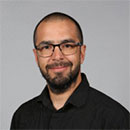
Daniel Espinoza
Senior Developer, Gurobi optimization
Thursday, October 11, 2018
Abstract
Models with numerical issues can lead to undesirable results: slow performance, wrong answers or inconsistent behavior. When solving a model with numerical issues, tiny changes in the model or computer can make a big difference in the results. In this talk I will give a quick overview of current MIP technology, describe what numerical issues are, including an overview of Gurobi guidelines, the impact numerical issues can have on your solutions, how to identify numerical issues within a model and finally how to avoid (most of) them by reformulating your model.
Bio
Daniel Espinoza holds a Ph.D. in Operations Research from Georgia Institute of Technology. He has published numerous papers in the fields of mathematical programming, computer optimization and operations research. His research interests include Cutting Planes, Large scale optimization, Applications in Electricity, Mine Planning, and other applications of Integer Programming. Prior to joining Gurobi, he was Associate Professor in the Department of Industrial Engineering at the Universidad de Chile.
Computational Approaches in Synthetic and Molecular Biology

Samuel D. Perli
Postdoctoral Scholar Galdstone Institutes, University of California San Francisco
Thursday, April 26, 2018
Abstract
Thanks to advanced sequencing technologies, vast amounts of high resolution "omic" data that capture the biological state at unprecedented levels of resolution are now being made available. Cutting-edge computational tools that can operate on this data to analyze, infer and predict biological behavior are thoroughly needed.
I will introduce a few tools that were built to address specific computational challenges in biological systems. We will first discuss an Analog computation based synthetic ratio-meter designed and built in eukaryotic cells. Later, a Digital memory system that can record biologically relevant information in human cells will be presented.
Finally, I will introduce an information theoretic framework for analyzing stem cell differentiation.
Bio
Sam Perli is a Postdoctoral Fellow working with Prof. Shinya Yamanaka at Gladstone Institutes and UCSF. Sam's research interests lie at the intersection of Computation and Molecular Biology. Sam is currently working on developing next generation applications of pluripotent stem cells while building computational tools for characterizing pluripotent stem cell development. Sam obtained his PhD at MIT working with Prof. Timothy Lu and won the Dimitris N. Chorafas award for his thesis titled "An Integrated CRISPR-Cas Toolkit for Engineering Human Cells". Prior to his foray into Biology, Sam obtained his Masters degree in Computer Science at MIT, working as a Presidential Fellow and his Bachelors degree in Electrical Engineering from IIT Madras where he was awarded the Institute Silver medal.
IEMS/OSL Talk: Visual Computational Sociology: Methods and Challenges
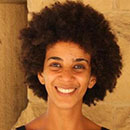
Microsoft Research, New York
Tuesday, April 10, 2018
Abstract
Targeted socio-economic policies require an accurate understanding of a country's demographic makeup. To that end, the United States spends more than 1 billion dollars a year gathering census data such as race, gender, education, occupation and unemployment rates. Compared to the traditional method of collecting surveys across many years which is costly and labor intensive, data-driven, machine learning driven approaches are cheaper and faster--with the potential ability to detect trends in close to real time. In this work, we leverage the ubiquity of Google Street View images and develop a computer vision pipeline to predict income, per capita carbon emission, crime rates and other city attributes from a single source of publicly available visual data. We first detect cars in 50 million images across 200 of the largest US cities and train a model to determine demographic attributes using the detect cars. To facilitate our work, we used a graph based algorithm to collect the largest and most challenging fine-grained dataset reported to date consisting of over 2600 classes of cars comprised of images from Google Street View and other web sources. Our prediction results correlate well with ground truth in come (r=0.82), race, education, voting, sources investigating crime rates, income segregation, per capita carbon emission, and other market research. Data mining based works such as this one can be used for many types of applications--some ethical and others not. I will finally discuss recent work (inspired by my experiences while working on this project), on auditing and exposing the gender and skin tone bias found in commercial gender classification systems. I will end with the concept of an AI datasheet to standardize information for datasets and pre-trained models, to push the field as a whole towards transparency and accountability.
Bio
Timnit Gebru works in the Fairness Accountability Transparency and Ethics (FATE) group at Microsoft Research, New York. Prior to joining Microsoft Research, she was a PhD student in the Stanford Artificial Intelligence Laboratory, studying computer vision under Fei-Fei Li. Her main research interest is in data mining large-scale, publicly available images to gain sociological insight, and working on computer vision problems that arise as a result, including fine-grained image recognition, scalable annotation of images, and domain adaptation. She is currently studying the ethical considerations underlying any data mining project, and methods of auditing and mitigating bias in sociotechnical systems. The New York Times, MIT Tech Review and others have recently covered her work. As a cofounder of the group Black in AI, she works to both increase diversity in the field and reduce the negative impacts of racial bias in training data used for human-centric machine learning models.
Algorithms for Nonconvex, Nonsmooth Otimization
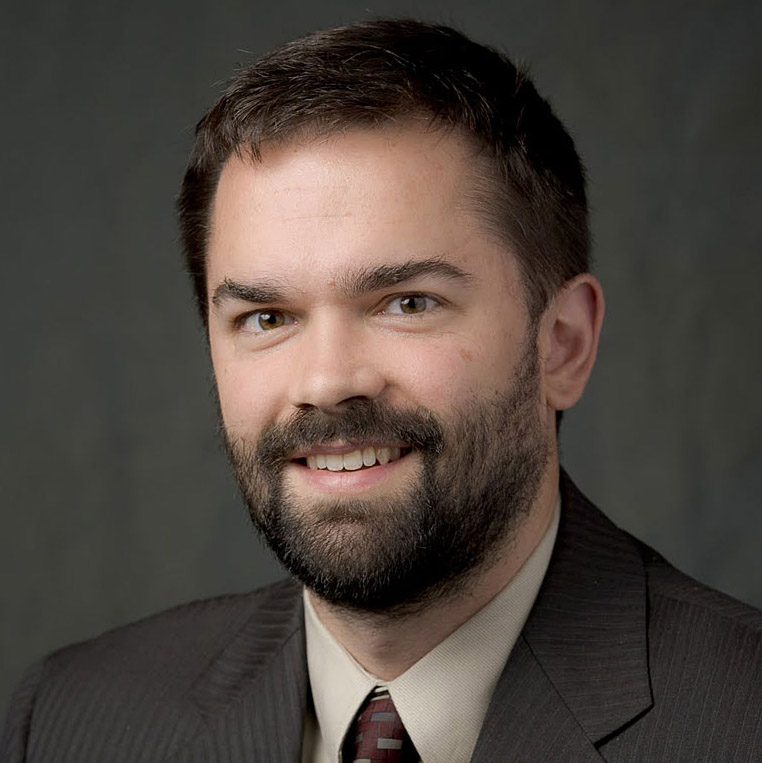
Frank E. Curtis
Associate Professor, Department of Industrial amd Systems Engineering, Lehigh university
Friday, March 2, 2018
Abstract
Intuitive descriptions of algorithms for solving nonconvex, nonsmooth optimization problems are presented. Starting with fund- amentals of subgradient, cutting plane, and gradient sampling methods for solving convex problems, the groundwork is laid for advancing to modern adaptive methods for solving more challenging nonconvex problems. Algorithms are presented from a geometric viewpoint. The tutorial closes with a discussion of issues related to the implementation of adaptive methods in the NonOpt software package, currently under development in collaboration with Andreas Wächter (Northwestern University) Presentation Slides here.
Intern and Postdoc Opportunities for Advancing Science and Engineering at Argonne

Prasanna Balaprakash
Computer Scientist at the Mathematics & Computer Science Division and the Leadershop Computing Facility, Argonne
Stephan Wild<
Computational Mathematician and Deputy Division Director at the Mathematics & Computer Science Division, Argonne
Thursday, Nobvember 30, 2017
Abstract
A number of student internships and postdoctoral fellow opportunities exist at Argonne National Laboratory, an open-science lab 30 miles southwest of Northwestern. We will provide an overview of research activities and opportunities spanning Argonne work in the computational, computer, data, and mathematical sciences; artificial intelligence; operations research; and statistics. Relevant activities span Argonne and involve Energy Systems Division; Global Security Sciences Division; Laboratory for Applied Mathematics, Numerical Software, and Statistics; Leadership Computing Facility; and Mathematics & Computer Science Division, as well as the joint Northwestern Argonne Institute of Science and Engineering. This interactive presentation will include opportunities at all education levels.
Recent Research in Power System Optimization: Approximation Error Quantification, Feasible Space Computation, & Convex Relaxations
Daniel Molzahn
Computational Engineer, Argonne National Laboratory
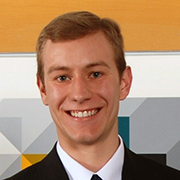
Thursday, November 30, 2017
Abstract
The power flow equations model the relationship between the voltages phasors and power flows in an electric power system. The nonlinearity of the power flow equations results in a variety of algorithmic and theoretical challenges, including non-convex feasible spaces for optimization problems constrained by these equations. This presentation focuses on three recent developments relevant to the power flow equations. By leveraging advances in convex relaxation techniques, this presentation first describes recent progress regarding a method for bounding the worst-case errors resulting from power flow linearizations. Using another new algorithm based on homotopy methods, this presentation next illustrates challenging feasible spaces associated with power system optimization problems. Finally, this presentation describes recent research using convex "moment" relaxations to find the global optima of many power system optimization problems.
Bio
Dr. Daniel Molzahn is a computational engineer at Argonne National Laboratory in the Center for Energy, Environmental, and Economic Systems Analysis. Prior to his current position, Daniel was a Dow Sustainability Fellow at the University of Michigan. Daniel received the B.S., M.S. and Ph.D. degrees in Electrical Engineering and the Masters of Public Affairs degree from the University of Wisconsin–Madison, where he was a National Science Foundation Graduate Research Fellow. His research interests are in the development of optimization and control techniques for electric power systems.
Automating the analysis and design of large-scale optimization algorithms
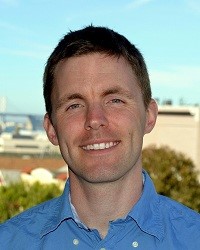
Laurent Lessard
Assistant Professor, Electrical and Computer Engineering, University of Wisconsin-Madison
Wednesday, October 11, 2017
Abstract
Most complicated optimization problems, in particular those involving a large number of variables, are solved in practice using iterative algorithms. The problem of selecting a suitable algorithm is currently more of an art than a science; a great deal of expertise is required to know which algorithms to try and how to properly tune them. Moreover, there are seldom performance guarantees. In this talk, I will show how the problem of algorithm selection can be approached using tools from robust control theory. By solving simple semidefinite programs (that do not scale with problem size), we can derive robust bounds on convergence rates for popular algorithms such as the gradient method, proximal methods, fast/accelerated methods, and operator-splitting methods such as ADMM. The bounds derived in this manner either match or improve upon the best known bounds from the literature. The bounds also lead to a natural energy dissipation interpretation and an associated Lyapunov function. Finally, our framework can be used to search for algorithms that meet desired performance specifications, thus establishing a principled methodology for designing new algorithms.
Bio
Laurent Lessard is an Assistant Professor of Electrical and Computer Engineering at the UW–Madison and faculty member of the Optimization Group at the Wisconsin Institute for Discovery. Laurent received the B.A.Sc. in Engineering Science from the University of Toronto, and received the M.S. and Ph.D. in Aeronautics and Astronautics at Stanford University. After completing his doctoral work, Laurent was an LCCC Postdoc at Lund University in Sweden, and a postdoctoral researcher at the University of California, Berkeley. His research interests include: decentralized control, robust control, optimization, and machine learning.
Stein's Identity and Near-Optimal Estimation in High-dimensional Index Models

Krishna Balasubramanian
Department of ORFE, Princeton University
Friday July 7, 2017
Abstract
In this talk I will present a method for estimating the parametric components of semi-parametric multiple index models (a.k.a. not-so-deep neural nets) in a high-dimensional non-Gaussian setting. The proposed estimators leverage the score function based first and second-order Stein's identity and do not require Gaussian or elliptical symmetry assumptions made in the literature. Moreover, to handle score functions and response variables that are heavy-tailed, the estimators are con-structed via carefully thresholding their empirical counterparts. On the theoretical front, I will show that the proposed estimator achieves near-optimal statistical rate of convergence in several settings. I will end this talk with a discussion of on-going work on extending similar ideas for near-optimal estimation in 2-layer neural networks under high-dimensional non-Gaussian assumptions.
Variance Reduction for Restricted Strong Convexity
Chao Qu
Postdoctoral Candidate, National University of Singapore
Thursday, April 13, 2017
Abstract
Computational challenges of statistical estimators and machine learning algorithms are an active area of study thanks to countless applications involving big data. In particular, several variants of stochastic first order methods based on variance reduction, namely SVRG, SDCA and SAGA, have attracted significant attention because of light computation load for each iteration, and fast convergence speed - for strongly convex problems they all converge with a linear rate. Yet, many powerful statistical and machine learning models (e.g., Lasso, group Lasso, nuclear norm regularized matrix completion), are not strongly convex, and sometimes even non-convex (a prominent example being the SCAD regularizer). In this talk, I will argue that a nice statistical property of those problems, namely restricted strong convexity, ensures that linear convergence of variance reduced stochastic first order methods for those statistical models. From a high level, our results re-confirmed a well-observed phenomenon that statistically easy problems tend to be more computationally friendly. We believe this intriguing fact indicates that there are fundamental relationships between statistics and optimization, and understanding such relationships may shed deep insights.
Bio
Chao Qu is a PhD student in the Department of Mechanical Engineering at National University of Singapore, advised by Huan Xu. His research interests mainly focuses on machine learning, high dimensional statistics and large scale optimization. Prior to National University of Singapore, he received his M.Phil. degree in ECE from Hong Kong University of Science and Technology and B. Eng. degree in Information Engineering from Xi’an Jiao Tong University.
Approximate Versions of the Alternating Direction Method of Multipliers

Jonathan Eckstein
Professor, Management Science and Information Systems, Rutgers University
Thursday, November 3, 2016
Abstract
The Alternating Direction Method of Multipliers (ADMM) is a decomposition method for convex optimization currently enjoying popularity in the solution of machine learning and image processing problems. This talk reviews the convergence mechanism of the ADMM and presents three new, provably convergent approximate versions in which one or both optimization subproblems arising at each iteration may be solved inexactly using practically testable approximation criteria. computational tests applying these methods on several different problem classes indicate that in cases in which an iterative method is used for at least one of the ADMM subproblems, these variants can significantly reduce total computational effort. We also discuss the possible application of these approximation techniques to the Progressive Hedging (PH) algorithm for stochastic programming, which may be viewed as a particular case of the ADMM.
Read Professor Eckstein's Bio .
Optimization Methods for Learning and Big Data

Donald Goldfarb
Alexander and Hermine Avanessians Professor of Industrial Engineering & Operations Research, Columbia University
Thursday, October 20, 2016
Abstract
Many problems in machine learning (e.g., logistic regression, support vector machines, neural networks, robust principal component analysis) and signal processing (e.g., face recognition and compressed sensing) are solved by optimization algorithms. In today's age of big data, the size of these problems is often formidable. In this talk, we will discuss some of our work that addresses this challenge using the following approaches: first-order (including proximal and conditional gradient) methods, accelerated variants, stochastic gradient and second-order extensions (including full and limited memory block BFGS updating methods), and alternating direction (multiplier) methods for structured problems.
Click here for Professor Goldfarb's Bio
Bridging the Gap Between Real-world Decision Making and Mathematics: Multi-objective Optimisation in Action

Matthias Ehrgott
Professor, Head of Department, Management Sciences, University of Lancaster
Wednesday, October 19, 2016
Abstract
In this talk I will first present several studies that illustrate the power of multi-objective optimisation in supporting decision makers facing conflicting goals. These studies are drawn from the fields of transportation (airline operations, traffic modelling), health radiation therapy treatment), and manufacturing (of composite materials). I will illustrate the widely differing mathematical methods used in these applications, but emphasise the common benefits of the multi-objective optimisation approach: The improved understanding of the problem achieved through additional insight into the problem structure; the improved support for decision makers through the ability to properly account for trade-offs between conflicting goals; and last but not least, the considerable benefits that result in terms of quality of decisions and/or improved decision making processes.
In the second part of the talk I will focus on a specific application in the radiotherapy treatment planning, namely the generation of deliverable treatment plans and beam angle optimisation in the presence of multiple objectives. External radiation therapy is one of the major forms of treatment of cancer. Planning a radiation treatment for a patient involves making trade-offs between the main goals of radiotherapy, namely to irradiate the tumour according to some prescription to affect tumour control and to avoid damage to surrounding healthy tissue. This conflict permeates all aspects of treatment planning from the selection of beam angles to the optimisation of fluence maps to the sequencing of the gantry for treatment delivery. In this talk I will first describe a matheuristic approach to incorporate multi-objective fluence optimisation in the beam angle optimisation problem and then describe a column generation approach to the multi-objective fluence map optimisation problem, which achieves a reduction of the number of apertures and total fluence required to deliver a Pareto-optimal treatment.
Click here for Professor Ehrgott's Bio
In-Network Nonconvex Big Data Optimization
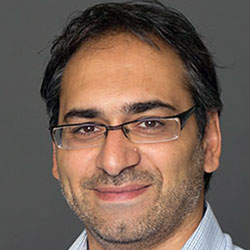
Gesualdo Scutari
Associate Professor of Industrial Engineering, Purdue University
Monday, October 10, 2016
Abstract
Nowadays, large-scale systems are ubiquitous. Some examples/applications include wireless communication networks; electricity grid, sensor, and cloud networks; and machine learning and signal processing applications, just to name a few. In many of the above systems, i) data are distributively stored in the network (e.g., clouds, computers, sensors, robots), and ii) it is often impossible to run analytics on central fusion centers, owing to the volume of data, energy constraints, and/or privacy issues. Thus, distributed in-network processing with parallelized multi-processors is preferred. Moreover, many applications of interest lead to large-scale optimization problems with nonconvex, nonseparable objective functions. All this makes the analysis and design of distributed/parallel algorithms over networks a challenging task.
In this talk we will present our ongoing work in this area. More specifically, we consider a large-scale network composed of agents aiming to distributively minimize a (nonconvex) smooth sum-utility function plus a nonsmooth (nonseparable), convex one. The latter is usually employed to enforce some structure in the solution, e.g., sparsity. The agents have access only to their local functions but not the whole objective, and the network is modeled as a directed, time-varying, B- strongly connected graph. We propose a distributed solution method for the above optimization wherein the agents in parallel minimize a convex surrogate of the original nonconvex objective while using a novel broadcast protocol to distribute the computations over the network. We discuss several instances of the general algorithm framework tailored to specific (convex and nonconvex) applications and present some numerical results validating our theoretical findings.
Read rofessor Scutari's Bio.
Seminar: Bayesian Optimization in the Tech Sector: The Parallel Knowledge Gradient Method, and Experiences at Uber, Yelp, and SigOpt
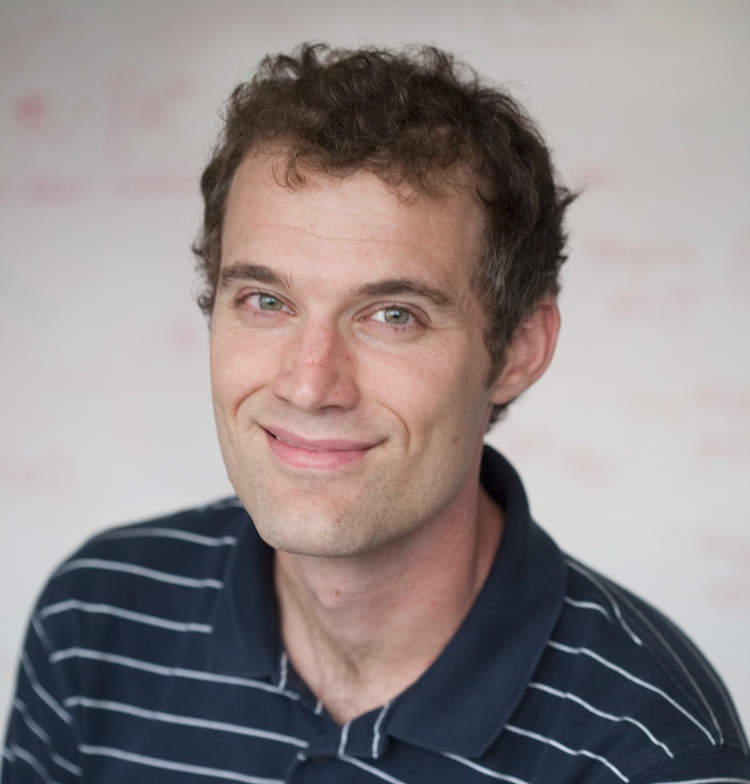
Cornell University
Tuesday, May 24
Seminar Abstract:
We discuss parallel derivative-free global optimization of expensive-to-evaluate functions, and the use of Bayesian optimization methods for solving these problems, in the context of applications from the tech sector: optimizing e-commerce systems, real-time economic markets, mobile apps, and hyperparameters in machine learning algorithms. We describe optimization as a decision-making task ("where should I sample next?") and study it using decision-theory, by placing a Bayesian prior distribution on the objective function, and choosing the set of points to evaluate next that provide the largest value of the information. Using this approach, we develop a novel algorithm for parallel derivative-free global optimization of expensive functions, called the parallel knowledge gradient (pKG) method, which outperforms previously state-of-the-art Bayesian methods. We conclude with examples of the impact of these methods in the tech sector, from the speakers' experiences working with Yelp, Uber, and the Bayesian Optimization startup company, SigOpt.
Tutorial: Coding for Researchers
Wednesday, May 25, 4 - 6 pm
Abstract
In this tutorial, we discuss techniques used in the software engineering industry to develop and manage large software products that are also useful for researchers. These techniques allow developing code more quickly, and result in code that is faster, more reliable, easier to use, and easier for others to understand, use, and extend. This tutorial will cover version control (focusing on git), unit testing, profiling, code optimization, code organization, techniques for managing computationally expensive experiments, and steps you can take to get people in the real world to actually use your ideas. This tutorial is designed for students who are writing software as part of their research, but who have not had prior exposure to techniques used in the software engineering industry. Examples will be given in Python, C, and Matlab.
Bio
Peter I. Frazier is an Associate Professor in the School of Operations Research and Information Engineering at Cornell University, and currently on sabbatical leave at Uber, where he is a Staff Data Scientist and the Data Science Manager for uberPOOL, Uber's carpooling service. His research interest is in sequential decision-making and Bayesian statistics, focusing on Bayesian optimization and optimal learning.
Extracting Governing Equations in Chaotic Systems From Highly Corrupted Data
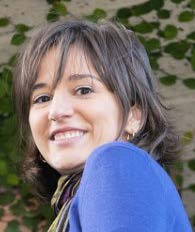
University of Texas at Austin
Tuesday, May 10, 2016
Read Seminar Abstract.
Bio
Rachel Ward obtained her BS in Mathematics from University of Texas at Austin, and her PhD in Applied and Computational Mathematics from Princeton University. She is currently an Assistant Professor in the Department of Mathematics and ICES member at University of Texas at Austin.
Recent Advancements in Optimization for the Big Data Regime
Sham Kakade
University of Washington
Monday, April 25
Multi-View Representation Learning With Canonical Correlation Analysis
Weiran Wang
Toyota Technological Institute at Chicago
Monday, April 18
Canonical correlation analysis (CCA) has been the main workhorse for multi-view feature learning, where we have access to multiple ''views'' of data at training time while only one primary view is available at test time. The idea of CCA is to project the views to a common space such that the projections of different views are maximally correlated.
In the first part of the talk, we compare different nonlinear extensions of CCA, and find that the deep neural network extension of CCA, termed deep CCA (DCCA), has consistently good performance while being computationally efficient for large datasets. We further compare DCCA with deep autoencoder-based approaches, as well as new variants. We find an advantage for correlation-based representation learning, while the best results on most tasks are obtained with a new variant, deep canonically correlated autoencoders (DCCAE).
In the second part of the talk, we study the stochastic optimization of canonical correlation analysis, whose objective is nonconvex and does not decouple over training samples. Although several stochastic optimization algorithms have been recently proposed to solve this problem, no global convergence guarantee was provided by any of them. Based on the alternating least squares formulation of CCA, we propose a globally convergent stochastic algorithm, which solves the resulting least squares problems approximately to sufficient accuracy with state-of-the-art stochastic gradient methods. We provide the overall time complexity of our algorithm which improves upon that of previous work.
This talk includes joint work with Raman Arora (JHU), Jeff Bilmes (UW), Jialei Wang (U Chicago), Nati Srebro (TTIC), and Karen Livescu (TTIC).
Weiran Wang is a postdoctoral scholar at Toyota Technological Institute at Chicago. He obtained the PhD degree from the EECS Department at University of California, Merced in 2013. His research includes algorithms for deep learning, multi-view representation learning, structured output (sequence) prediction, manifold learning, optimization for machine learning, and applications to acoustic modeling for speech recognition.
Fast and Simple PCA via Convex Optimization
Dan Garber
Toyota Technological Institutue of Chicago
Tuesday, April 5
Computing the leading eigenvector of a real symmetric matrix is a fundamental problem in numerical linear algebra with numerous important applications, the most notable one probably being principal component analysis. Thus, in face of the ever increasing size of modern datasets, designing faster algorithms for this problem is an important challenge. Unfortunately, this problem is inherently non-convex, which makes it very difficult to adapt to it powerful techniques that were developed for convex problems, such as Nesterov's acceleration and various stochastic gradient methods, that proved highly useful for handling very large scale convex problems.
In this talk I will show that the leading eigenvector problem, though not convex, is reducible to solving a short (i.e. only poly-logarithmic in the important parameters of the problem) sequence of well-conditioned unconstrained convex optimization problems. This in turn, allows us to apply state-of-the-art stochastic gradient methods for solving this sequence of problems. As a result we derive algorithms for computing the leading principal component which are the fastest to date in a wide regime of parameters.
Dan Garber is a Research Assistant Professor at the Toyota Technological Institute at Chicago, a philanthropically endowed academic computer science institute located on the University of Chicago campus. Dan's research interests lie in the intersection of machine learning and continuous optimization, with the main focus being the development of efficient algorithms with novel and provable performance guarantees for basic machine learning, data analysis, decision making and optimization problems. Research highlights include faster projection-free first-order convex optimization algorithms, sublinear-time algorithms for semidefinite programming, and algorithms with stronger guarantees for principal component analysis in a variety of settings including offline (classical) computation, streaming and online.
Dan received both his Ph.D and his M.Sc degrees from the Technion - Israel Institute of Technology, where he worked under the supervision of Prof. Elad Hazan. Before that, Dan completed his bachelor's degree in computer engineering, also in the Technion.
Seminar: Advances in Fitting Statistical Models to Huge Datasets

University of British Columbia
Tuesday, March 8, 2016
Abstract:
The talk will contain two parts. In the first part, I will consider the problem of minimizing a finite sum of smooth functions. This is a ubiquitous computational problem across science and engineering, and includes special cases like least squares and logistic regression. I will describe the stochastic average gradient algorithm which, despite over 60 years of work on stochastic gradient algorithms, is the first method to achieve the low iteration cost of stochastic gradient methods while achieving a linear convergence rate as in deterministic gradient methods that process the entire dataset on every iteration.
In the second part, I will consider the even-more-specialized case where we have a linearly-parameterized model (such as linear least squares or logistic regression). I will talk about how coordinate descent methods, though a terrible idea for minimizing general functions, are theoretically and empirically well-suited to solving such problems. I will also discuss how we can design clever coordinate selection rules, that are much more efficient than the classic cyclic and randomized choices.
Tutorial: The Why and How of Releasing Applied-Math Code
In this talk I will argue that researchers should be releasing more code, whether it be implementations of algorithms proposed in their papers or even reference implementations of basic methods from their field. I'll discuss the benefits of this to the person releasing the code as well as to their field and science/engineering as a whole. Then I'll turn to my personal views on the factors that should go into designing a good code: design principles and making code extendable, performance vs. generality, licensing options, and user support/interfaces. Finally, for the specific case of codes related to solving optimization (where continuous or discrete or decision), I will discuss the *real* objective function that all users care about but that is completely ignored in most research on this topic.
Bio
Mark Schmidt has been an assistant professor in the Department of Computer Science at the University of British Columbia since 2014, and a Canada Research Chair since 2016. His research focuses on developing faster algorithms for large-scale machine learning, with an emphasis on methods with provable convergence rates and that can be applied to structured prediction problems. From 2011 through 2013 he worked at the École normale supérieure in Paris on inexact and stochastic convex optimization methods. He finished his M.Sc. in 2005 at the University of Alberta working as part of the Brain Tumor Analysis Project, and his Ph.D. in 2010 at the University of British Columbia working on graphical model structure learning with L1-regularization. He has also worked at Siemens Medical Solutions on heart motion abnormality detection, with Michael Friedlander in the Scientific Computing Laboratory at the University of British Columbia on semi-stochastic optimization methods, and with Anoop Sarkar at Simon Fraser University on large-scale training of natural language models.
Robust Bivariate Error Detection in Skewed Data With Application to Historical Radiosonde Winds
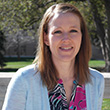
Colorado School of Mines
Tuesday, February 23
Bio
Amanda Hering graduated from Baylor University with a bachelors degree in mathematics in 1999. She joined the Department of Applied Mathematics and Statistics at The Colorado School of Mines as an Assistant Professor in 2009 after earning her Ph.D. in Statistics from Texas A&M University. She is the CSM Site Director for the Center for Research and Education in Wind, and her research interests are in the areas of spatial and space-time modeling, wind speed forecasting, model validation, and multivariate methods. She is an Associate Editor for four journal, including Technometricsand Environmetrics. Association and past Associate Editor or Editorial Board Member of Technometrics, Journal of Quality Technology, Operations Research, and Naval Research Logistics.
Read Seminar Abstract.
Robust Maximum Likelihood Estimation
Omid Nohadani
Northwestern University, Department of Industrial Engineering & Management Sciences
Tuesday, November 17th
In many applications, statistical estimators serve to derive conclusions from data, most prominently in finance, medical decision-making and clinical trials. However, the conclusions are typically dependent on uncertainties in the data. We use robust optimization principles to construct robust maximum likelihood estimators that are immune against data errors. Both types of errors are considered: a) adversarial type, modeled using the notion of uncertainty sets, and b) probabilistic type, modeled by distributions. We provide efficient local and global search algorithms to compute the robust estimators and discuss them in details for the case of multivariate normally distributed data. The estimator performance is demonstrated on two datasets. First, using computer simulations, we demonstrate that the proposed estimators are robust against both types of data uncertainty and provide significantly more accurate estimates, compared to classical estimators which degrade significantly, when errors are encountered. We establish a range of uncertainty sizes, for which robust estimators are superior. Second, we analyze deviations in cancer radiation therapy planning. Uncertainties amongst plans are caused by patients’ individual anatomies and the trial-and-error nature of the process. Robust estimators prove to be result in more reliable decisions when applied to a large set of past treatments.
Learning (From) Networks: Fundamental Limits, Algorithms, and Applications
Soheil Feizi
MIT
Friday, November 6th
Network models provide a unifying framework for understanding dependencies among variables in medical, biological, and other sciences. Networks can be used to reveal underlying data structures, infer functional modules, and facilitate experiment design. In practice, however, size, uncertainty and complexity of the underlying associations render these applications challenging.
In this talk, we illustrate the use of spectral, combinatorial, and statistical inference techniques in several significant network science problems. First, we consider the problem of network alignment where the goal is to find a bijective mapping between nodes of two networks to maximize their overlapping edges while minimizing mismatches. To solve this combinatorial problem, we present a new scalable spectral algorithm, and establish its efficiency theoretically and experimentally over several synthetic and real networks. Next, we introduce network maximal correlation (NMC) as an essential measure to capture nonlinear associations in networks. We characterize NMC using geometric properties of Hilbert spaces and illustrate its application in learning network topology when variables have unknown nonlinear dependencies. Finally, we discuss the problem of learning low dimensional structures (such as clusters) in large networks, where we introduce logistic Random Dot Product Graphs, a new class of networks which includes most stochastic block models as well as other low dimensional structures. Using this model, we propose a spectral network clustering algorithm that possesses robust performance under different clustering setups. In all of these problems, we examine underlying fundamental limits and present efficient algorithms for solving them. We also highlight applications of the proposed algorithms to data-driven problems such as functional and regulatory genomics of human diseases, and cancer.
Subgraph Mining and Factorization Algorithms to Clinical Narrative Text
Yuan Luo
Assistant Professor, Northwestern University, Division of Health & Biomedical Informatics and Department of Industrial Engineering & Management Sciences
Tuesday, October 27th
This talk covers our works on applying subgraph mining and factorization algorithms to clinical narrative text, ICU physiologic time series and computational genomics. The common theme of these works aims at building clinical models that improve both prediction accuracy and interpretability, by exploring relational information in each data modality.
This talk focuses on three concrete examples, implicating neurodevelopmentally coregulated exon clusters in phenotypes of Autism Spectrum Disorder (ASD), predicting mortality risk of ICU patients based on their physiologic measurement time series, and identifying subtypes of lymphoma patients based on pathology report text. In each example, we show how to automatically extract relational information into a graph representation and how to collect important subgraphs that are of interest. Depending on the degree of structure in the data format, heavier machinery of factorization models becomes necessary to reliably group important subgraphs. We demonstrate that these methods lead to not only improved performance but also better interpretability in each application.
OSL User Group Meetings
Monday, February 6th, 2023
Harun Avci, Shigeng Sun, and Oliver Liu will teach us how to use Python editors, PyCharm and VScode. To have a more interactive meeting, please install PyCharm and VScode on your computer before the meeting so that we can run some examples using these editors.
Monday, January 23rd, 2023
General Discussion
Monday, November 28th, 2022
Resumption of OSL User Group Meetings for 2022-23, open discussion
Thursday, February 24th, 2022
We will be playing a mysterious Linux computer game together to get you familiar with that system! Awesome chance if you wanna learn to use Linux!
Don't have a Linux machine? Not to worry! We are giving out free Linux accounts to OSL users on the department supernova machine (check out the specs here on our wiki)! To claim yours if you haven't: please follow instructions on this page. For information on requesting access, please reach out to Shigeng Sun.
November 4, 2021
- Introduction OSL user group.
- Demonstration how to connect to supernova.
- Discussion of topics for next meetings (started list on OSL User Meetings)
April 1, 2021
In this meeting, Helena Ribera introduced Cython, an optimizing static compiler that combines the power of C and Python. She explained the key advantages of Cython through a few illustrative examples, and highlighted the computational efficiency improvements compared to standard Python.
March 11, 2021
In this meeting, Ozge Surer explained how she made her Python package surmise available on github. She discussed what tools she used to maintain documentation, collaborate with other team members, and create tests.
January 28, 2021
In this talk we primarily discussed two aspects of computing:
- Real-world coding experience
- Programming best practices
November 12, 2021
Re-introduction of OSL user meetings
- Intro and logistics of OSL User Meetings
- Most popular topics among attendants
April 14th, 2022
Oliver Liu gave a tutorial on Git.
April 28th, 2022
Professor Andreas Waechter gave a tutorial on how to use the Cruch cluster.
May 12th, 11:00 AM - 12:00 PM, Tech C211
Harun Avci gave a tutorial on object-oriented programming in Python and discussed its benefits.
